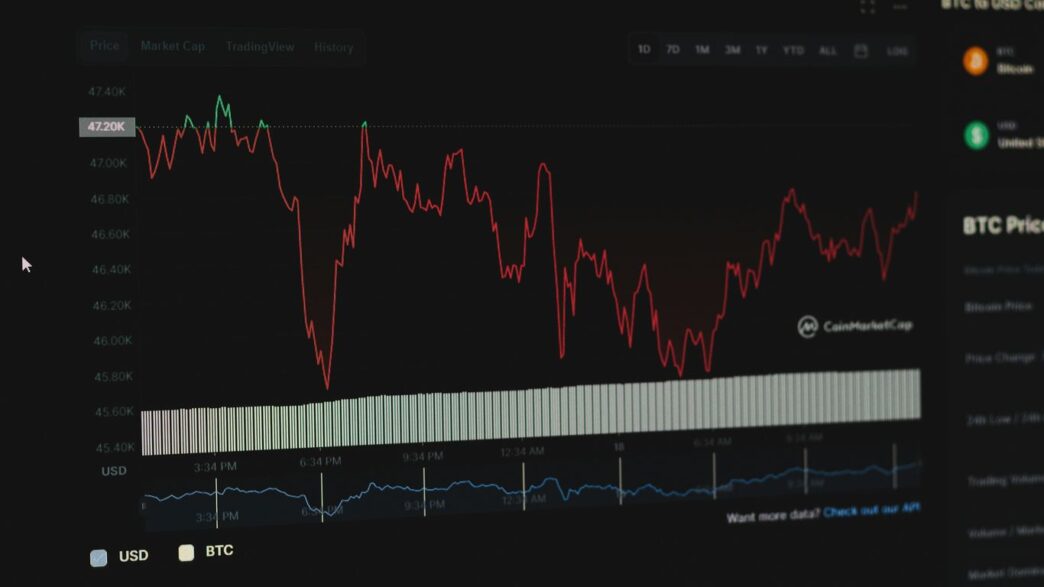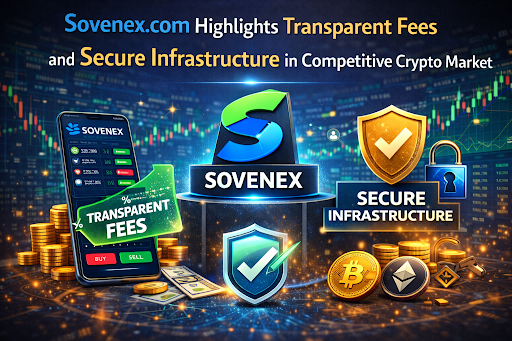Mercor Valuation Reaches Ten Billion Dollar Mark
A Significant Leap in Funding Rounds
It’s pretty wild to think about, but Mercor just hit a valuation of $10 billion. That’s a huge jump, especially when you consider they were aiming for $8 billion not too long ago. This latest funding round, a Series C, brought in $350 million, with Felicis Ventures leading the charge again, alongside other big names like Benchmark and General Catalyst. It really shows how much investors are betting on their future.
Understanding the Mercor Valuation Growth
So, how did they get here so fast? Mercor started out as a hiring platform, but they really found their stride connecting AI companies, like OpenAI and Google DeepMind, with specialized experts. Think scientists, doctors, lawyers – people who know their stuff and can help train and refine complex AI models. This pivot seems to have been a game-changer. Their annual revenue run rate is reportedly approaching $450 million, and they’re even claiming to be on track to hit $500 million faster than some other big players in the AI space. That kind of growth is hard to ignore.
Investor Confidence in Mercor’s Trajectory
This massive valuation isn’t just pulled out of thin air. It reflects a strong belief from investors that Mercor is onto something big. The AI world is exploding, and the need for high-quality, specialized data to train these models is only growing. Mercor seems to have positioned itself perfectly to meet that demand. Plus, with a lean team of just around 30 employees, mostly in their early twenties, they’re showing that a small, focused group can make a massive impact. It’s a testament to their strategy and execution.
The Business Model Fueling Mercor’s Success
So, how exactly did Mercor go from a startup to a $10 billion company so quickly? It really comes down to their smart business model. They figured out a way to connect two big needs in the AI world: the need for specialized human knowledge and the need for efficient ways to train AI.
Connecting AI Labs with Domain Experts
Think about it. AI models, especially the big ones like those used by OpenAI or Google DeepMind, need a ton of data to learn. But not just any data – they need data that’s been checked, labeled, and understood by people who actually know what they’re talking about. That’s where Mercor steps in. They’ve built a huge network of people – over 30,000 experts, actually – who have deep knowledge in fields like medicine, law, finance, and engineering. These aren’t just random folks; they’re professionals who can provide the nuanced understanding AI models need to get better at specific tasks. Mercor acts as the bridge, connecting these AI companies with the right human brains for the job.
Revenue Generation Through Specialized Matching
Mercor makes money by being the middleman in this expert-to-AI connection. When an AI lab needs someone to train a model on, say, medical imaging, Mercor finds a qualified doctor or radiologist from their network. They then charge the AI company for this expert’s time. It’s a pretty straightforward system: Mercor takes a fee for finding and matching the right talent. This model seems to be working incredibly well, as they’re reportedly paying out over $1.5 million daily to their network of contractors. It’s a win-win: AI companies get the specialized help they need, and the experts get paid well for their knowledge.
The Role of Reinforcement Learning Infrastructure
Beyond just connecting people, Mercor is also building out the tools that make this training process smoother. They’re investing in infrastructure for reinforcement learning (RL). RL is a type of AI training where the model learns by trial and error, getting feedback on its decisions. By providing better tools and platforms for this kind of training, Mercor helps AI models learn more effectively and efficiently. This focus on the underlying technology, not just the human element, shows they’re thinking long-term about how to improve AI development.
Market Dynamics and Mercor’s Strategic Advantage
It feels like the whole AI world is moving at warp speed, right? Companies are pouring money into AI, and suddenly, everyone needs super-specific talent to train these complex models. It’s a bit of a gold rush, and Mercor seems to have hit the motherlode at just the right time.
Capitalizing on Industry Shifts
Think about it: AI isn’t just about writing code anymore. It’s about making AI understand things like medical diagnoses, legal documents, or complex financial markets. That’s where Mercor’s model really shines. They saw that big AI labs, like OpenAI and Google DeepMind, needed more than just generic data labelers. They needed actual experts – doctors, lawyers, scientists – to teach AI the nuances of their fields. Mercor stepped in to fill that gap, connecting these labs with the right people.
- The demand for specialized AI talent has exploded. Companies can’t just rely on generalists anymore.
- Foundational AI models require deep domain knowledge for effective training, something Mercor provides.
- The shift from basic data labeling to complex model refinement created a new market opportunity.
Competitive Landscape and Neutrality
This is where things get really interesting. You might remember when Scale AI got a massive investment from Meta. Well, that move apparently made some big AI players a little nervous about Scale AI’s neutrality. It seems like when Meta bought a big chunk of Scale AI and its CEO moved over, other major AI companies started looking for alternatives. Mercor, with its focus on being an independent platform, suddenly looked like a really safe bet. This perceived neutrality became a significant selling point.
The Impact of Scale AI’s Evolution
Scale AI’s situation created a vacuum, and Mercor was perfectly positioned to grab it. While Scale AI was dealing with its own shifts, Mercor was busy building out its network and proving its model. It’s a bit like when a big player stumbles, and smaller, agile companies can swoop in. Mercor’s ability to quickly scale its operations and attract top-tier clients like OpenAI and Google DeepMind, even while facing competition from other startups like Surge AI, shows they’ve got a solid strategy. They’re not just riding a wave; they’re actively shaping it.
Implications for Talent Acquisition Strategies

Mercor hitting a $10 billion valuation isn’t just a big deal for the company; it really shakes things up for anyone trying to hire in the AI space. It shows just how much companies are willing to pay for specialized AI talent and the infrastructure to train it. This means the competition for skilled AI professionals is only going to get fiercer.
The Growing Demand for Specialized AI Talent
It’s pretty clear that AI isn’t just a buzzword anymore. Companies are pouring money into developing advanced AI, and that requires people with very specific skills. We’re talking about folks who understand machine learning, data science, and have deep knowledge in particular fields like medicine or law to train AI models properly. Mercor’s success is built on connecting these AI labs with exactly those kinds of domain experts. This signals a massive, ongoing need for talent that can bridge the gap between raw AI capabilities and real-world application.
How Mercor’s Model Influences Hiring
Mercor’s approach changes the game for hiring. Instead of traditional recruitment, they’ve built a massive network of over 30,000 experts who are ready to work on AI training projects. They pay out over $1.5 million daily to this network, which is pretty wild. For companies looking to hire, this means:
- Access to a Pre-Vetted Talent Pool: Companies can tap into Mercor’s network for specialized skills without going through the usual lengthy hiring process.
- Flexible Workforce Solutions: It offers a way to scale AI training efforts up or down quickly by bringing in experts as needed, rather than committing to full-time hires.
- Focus on Project-Based Needs: This model is perfect for companies that have specific AI training projects rather than ongoing, broad AI development needs.
Future of AI-Powered Recruiting Marketplaces
Mercor’s valuation suggests that AI-powered marketplaces for talent are the future. They’re not just connecting people; they’re building infrastructure to make the whole process smarter and more efficient. We can expect to see more platforms like Mercor emerge, using AI to match companies with the right talent faster and more accurately. This could lead to:
- Automated Skill Matching: AI algorithms will get better at identifying the precise skills needed for complex AI roles.
- Global Talent Access: These platforms will make it easier to find and hire talent from anywhere in the world.
- Reduced Time-to-Hire: The speed at which companies can find and onboard specialized AI professionals will dramatically increase.
The New Generation of Tech Entrepreneurs

It’s pretty wild to think about, but the tech world is seeing a whole new wave of founders, and they’re not waiting around. We’re talking about people who are barely out of their teens, building companies that are changing the game. Mercor’s $10 billion valuation is a huge part of this story, showing that age really isn’t the barrier it used to be.
Young Founders Driving Innovation
These aren’t your typical entrepreneurs with decades of experience. We’re seeing folks who are still in their early twenties, like the founders of Mercor, who are making massive moves. They’ve managed to build something significant in just a few years. It makes you wonder what else is out there, waiting to be built by people with fresh ideas and a lot of drive.
From College Campuses to Billion-Dollar Valuations
Think about it: these founders often start in college dorms or even drop out to pursue their ideas. They’re not afraid to take big swings. Mercor’s founders, for instance, were Thiel Fellows, which means they took money from Peter Thiel to skip college and focus on their startup. That’s a bold move, right? It shows a different path to success is totally possible now.
- Taking calculated risks: Like foregoing traditional education for hands-on experience.
- Identifying market needs: Spotting gaps in areas like AI training where human input is still key.
- Executing with speed: Moving fast to capture opportunities in a rapidly changing tech landscape.
The Intersection of AI, Automation, and Global Talent
What’s really interesting is how these young entrepreneurs are tapping into new technologies. AI and automation are huge, and they’re figuring out how to use them, but also how to connect them with people. Mercor’s whole model is about linking AI companies with human experts. It’s a smart way to use technology while still valuing human skills. This blend of tech and talent is where a lot of the future growth will be, and these young founders are leading the charge.
Mercor’s Operational Scale and Financial Performance
It’s pretty wild to think about how fast Mercor has grown. They’ve managed to hit this $10 billion valuation mark, and a big part of that is just how massive their operations have become. It’s not just about the money; it’s about the sheer number of people and the daily flow of work.
Daily Payouts to a Vast Contractor Network
One of the most striking things about Mercor is how much money they move around to their network of experts every single day. We’re talking about over $1.5 million being paid out daily. That’s a huge amount, and it shows just how many people are actively working on AI training tasks through their platform. They’ve got more than 30,000 domain experts signed up, folks like scientists, doctors, and lawyers, who are earning a pretty good rate, often over $85 an hour on average. It’s like a global gig economy specifically for making AI smarter.
Impressive Revenue Growth and Profitability
When you look at the numbers, Mercor’s revenue growth is pretty staggering. They’ve gone from $100 million in annualized revenue to hitting the $500 million mark in what seems like no time at all, just within 2024. What’s even more interesting is that while they’re growing this fast, they’re also profitable. Reports suggest they made about $6 million in profit in the first half of the year. That’s a big deal because it shows they’re not just spending money to grow; they’re building a sustainable business. It’s a different story than some other fast-growing tech companies that are still burning through cash.
Lean Team, Massive Impact
Here’s something that really makes you pause: Mercor is achieving all of this with a surprisingly small core team. We’re talking about just around 30 employees, many of whom are still in their early twenties. It’s a testament to how they’ve built their platform and processes. They’ve created a system that can manage a huge network of contractors and a significant amount of revenue with a very lean internal structure. This efficiency is probably a big reason why investors are so confident in their trajectory and why they can maintain profitability even while scaling so rapidly.
What This Means for Talent Acquisition
So, Mercor hitting a $10 billion valuation is a pretty big deal, not just for them but for anyone looking to hire in the AI space. It shows that companies are really willing to pay for specialized talent that can help train these complex AI models. For businesses trying to find the right people, it means the demand for these unique skills is only going to grow. You might need to think differently about how you find and attract folks with that specific AI training know-how. It’s a sign that the talent game in AI is getting serious, and companies that can connect the right experts with the right projects are going to be in high demand.












